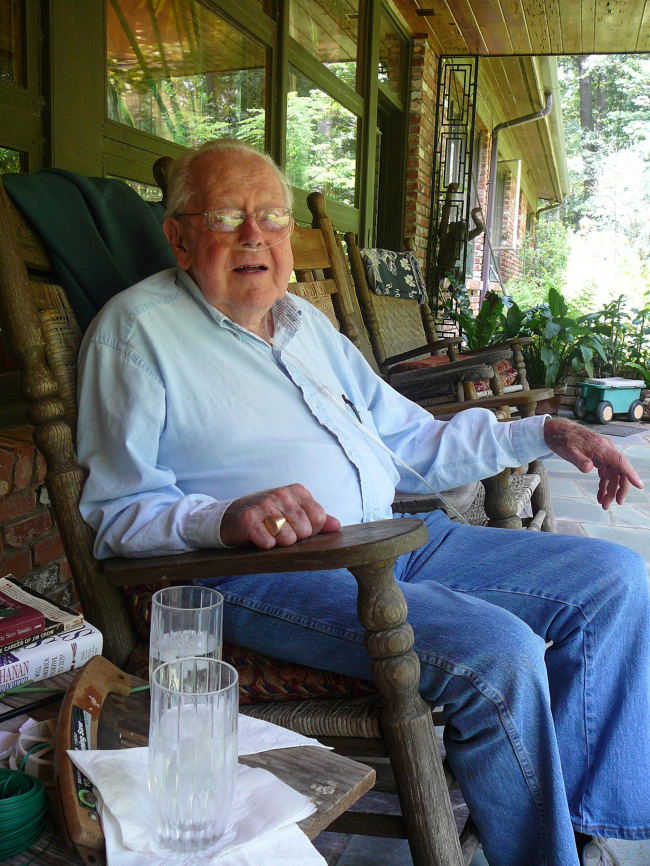Categorize him as a classic Southern writer. Call him a keen observer of life in Georgia. But don’t confuse Ferrol Sams with writers who revel in the “moonlight and magnolias” of the Old South.
“When my first book was published, a lady wrote to tell me she was so glad that there was finally something between ‘Tobacco Road’ and ‘Gone With the Wind,’” said Sams, whose three novels, short story collections and personal reminiscences draw deeply on the roots of his youth, growing up on a cotton farm in Fayette County. “I knew there was a place for those stories because nobody was chronicling them. I don’t really regard myself as an iconic Southern writer, but I guess I am. I just write about what I know.”
 |
Author Ferrol Sams (Atlanta Journal-Constitution/MCT) |
Since his first book, “Run With the Horsemen,” was published in 1982, the Fayetteville resident, now 89, has been applauded for his use of language, humor and sense of place.
Among his awards are a 2007 induction into the Georgia Writers Hall of Fame and the 1991 Townsend Prize for fiction.
On June 16, the Georgia Writers Association added a lifetime achievement award to Sams’ honor roll. (Though family obligations kept him from attending, a video interview was shown.) The presentation was part of the organization’s 48th annual Georgia Author of the Year Awards that recognize outstanding works by resident authors published in 2011.
“Sams has produced a solid body of work that resounds with the laughter, tears and joy of Southern life,” said Margaret Walters, the association’s executive director and a professor of English at Kennesaw State University. “He clearly and accurately and believably captures the voices of all his characters. His stories capture the times and places of the South over the past six decades.”
Sams says he developed his writing skills in the 1930s, under the tutelage of a Mercer University professor who demanded that students write only about what they knew. What Sams knew was the rigorous life of growing up on a Southern farm during the Great Depression.
“Dr. Jones set me on fire,” Sams said. “He told us, ‘Don’t write a story about the streets of Paris if you’ve never been out of Valdosta.’ Growing up, there was no TV, no radio ― just long summer afternoons when my grandmother would receive visitors and longer summer nights on the front porch with my grandfather telling stories about how life used to be.”
Though the professor told him he had the talent to earn a living as a writer, Sams headed to medical school at Emory University. His education was interrupted by World War II, during which he served as a medic, arriving in Normandy a month after D-Day. At the end of the war, Sams finished med school, married fellow student Helen Fletcher and with her, set up a general practice in Fayetteville. The couple retired five years ago.
Despite having an established practice, Sams sat down at his kitchen table in the 1970s and, with a ballpoint pen, scratched out the plot of his first novel, drawing on the anecdotes of rural life that he inherited as well as witnessed.
“I started getting up before dawn to write and thought about Dr. Jones’ rules,” he said. “Sometimes I would wake up at 2 or 3 a.m. and work on it. It was a compulsion.”
Through friends, Sams was introduced to an Atlanta publisher, who took on his first novel. “I am very fortunate that I’ve published eight books without ever having to put a manuscript in the mail,” he said. “I don’t even have an agent.”
Now using an oxygen tube and a walker, Sams continues to write from his home, a few blocks from the county courthouse.
“It’s largely for myself now,” he said. “But the biggest difference is I’m using real names.”
By H.M. Cauley
(The Atlanta Journal-Constitution)
(MCT Information Services)








